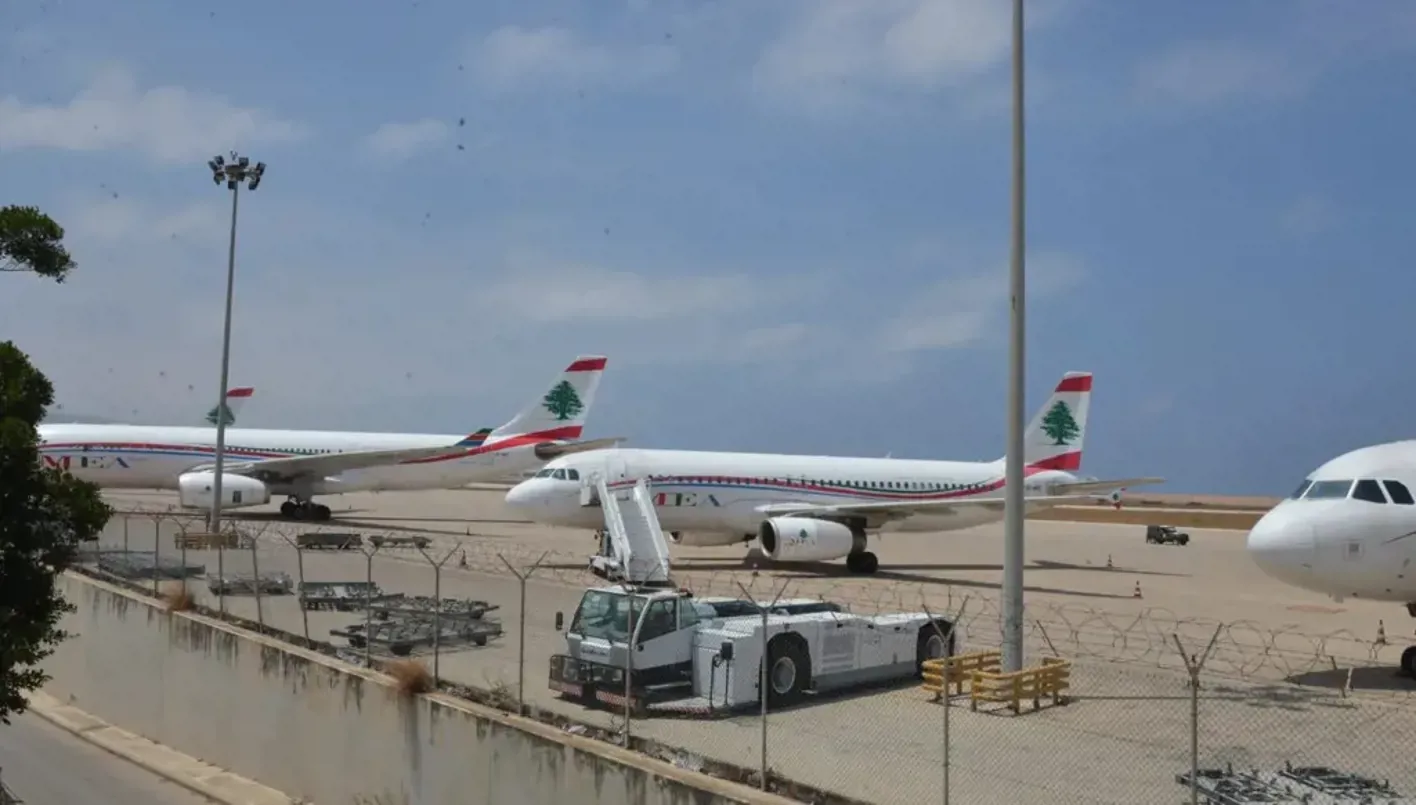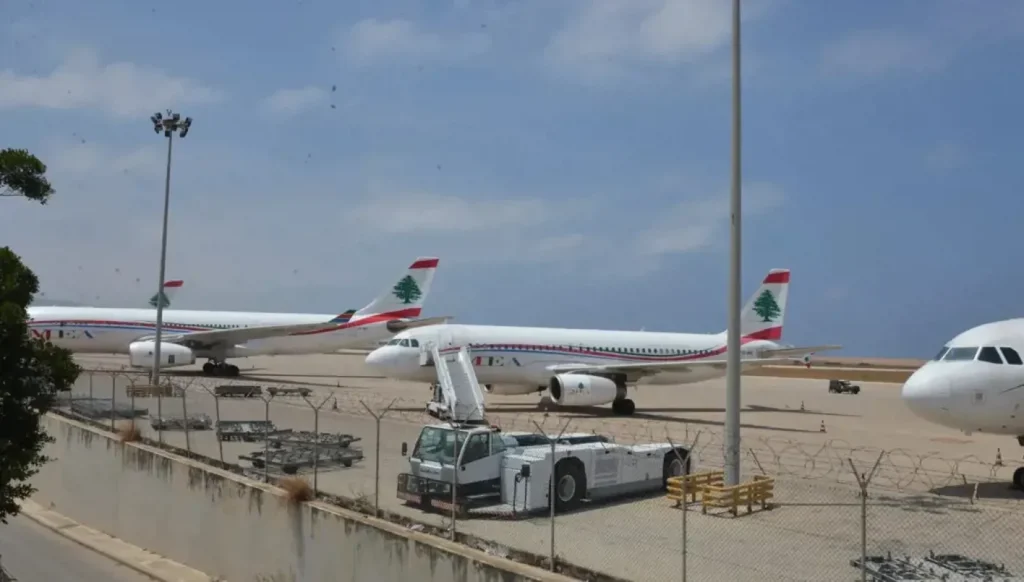Middle East Airlines planes at Beirut Rafic Hariri International Airport (Houssam Shbaro)
Many Lebanese have not accepted the spontaneous—or perhaps orchestrated—campaign against Middle East Airlines (MEA), which has recently expanded systematically in some media and on social networks.
The expansion of the campaign suggests a deliberate targeting, apparently aiming for the “head of the company” that kept Beirut airport operational, transporting hundreds of thousands of expatriates and travelers to safer and more stable countries, while all other Arab and international airlines left.
However, targeting the national company without substantial reasons or justifications is nothing but recalling routine obstacles or disruptions that may occur in the operation of any commercial transport company, to exploit them in a campaign full of defamation and exaggerated false accusations.
This is not a defense of MEA nor an absolution of mistakes. Anyone who works can stumble due to circumstances. Yet, the tremendous efforts made by the company’s management, technicians, and pilots since September 2024 until today, risking the lives of workers on the ground and in the air, deserve understanding and respect from some Lebanese “complainers” about a “lack” in one of the luxury features they were accustomed to with MEA. In fact, business class passengers affected by the difference in class on European planes numbered 2,237 out of 46,000 passengers, less than 5%.
What are the facts? Are there substantial reasons that warranted the campaign against the company?
Like other global airlines, Middle East Airlines was affected during the summer 2025 season by the worldwide crisis related to Pratt & Whitney engines that power Airbus A320neo planes, leading to the grounding of three modern aircraft of this model within its fleet. This crisis, according to MEA Chairman Mohamed Al-Hout in an interview with An-Nahar, did not only affect MEA but also several global airlines, as evidenced by the grounding of more than 500 planes worldwide.
According to available information, the engines suffer manufacturing defects related to the metal powders used in the compressor blades, which forced the manufacturer to launch an emergency maintenance program including deep inspections and engine replacements on several planes worldwide.
The grounding of these planes occurred suddenly and prematurely during summer 2025, contrary to the expected maintenance plans by the engine manufacturer, which anticipated expiration in 2026, without affecting flight safety at any time.
Al-Hout confirms that “in light of these sudden developments, the company faced two bitter choices: cancel some flights and refund passengers, which would have major negative impacts on travelers’ plans; or reroute passengers through the national company to other airlines, which was not possible due to seat shortages during peak season. Given this reality, the company decided to lease 3 planes from a Lithuanian company with their crews and reschedule its flights. The company is registered in Europe and complies with the European Aviation Safety Agency (EASA) standards.”
But did the engine crisis affect MEA’s operations? Al-Hout answers with numbers, revealing that “during August 2025, the company operated 1,301 flights carrying about 337 passengers, including 111 flights on leased planes, representing 8.53% of its total flights.”
Additional Miles for Business Class Passengers
It is well known that planes available for lease on the global market include economy and European business class seats but do not offer the Cedar Class business class similar to that on MEA’s own planes. Naturally, business class passengers were affected by the difference in class. However, Al-Hout confirms that “their percentage does not exceed 5% of the total passengers transported on the European planes. Nevertheless, the company did not withhold business class facilities on the ground, including Cedar Lounge service and baggage handling.”
Because MEA recognizes that the European business class experience does not match the usual experience on its planes, it decided to grant European business class passengers on these planes additional miles according to destinations as follows: 20,000 miles for travelers to Europe, 15,000 miles for travelers to Gulf countries, 11,250 miles for travelers to Istanbul, Baghdad, Erbil, and Yerevan, and 8,750 miles for travelers to Cairo, Larnaca, and Amman.














Recommended for you
Exhibition City Completes About 80% of Preparations for the Damascus International Fair Launch
Talib Al-Rifai Chronicles Kuwaiti Art Heritage in "Doukhi.. Tasaseem Al-Saba"
Unified Admission Applications Start Tuesday with 640 Students to be Accepted in Medicine
Al-Jaghbeer: The Industrial Sector Leads Economic Growth
Ministry of Media Announces the 10th Edition of 'Media Oasis'
Love at First Sight.. Karim Abdel Aziz and Heidi: A Love That Began with a Family Gathering and 20 Years of Marriage